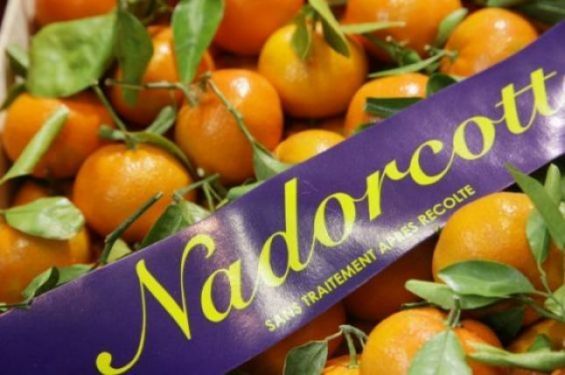The Advocate General of the Court of Justice of the European Union, Henrik Saugmandsgaard Øe, gave his opinion on Thursday about a long legal battle between the company Nador Cott Protection and the company José Cánovas Pardo SL.
The first is a company incorporated under French law that holds the property rights for a Moroccan variety of mandarin called Nadorcott. It is associated with the National Institute of Agronomic Research (INRA) and Les Domaines Agricoles, which manages and markets products from farms owned by the royal family. The second is owned by a farmer based in Murcia, Spain.
Thus, Henrik Saugmandsgaard Øe supported the arguments of the company Nador Cott Protection against the company Pardo which refuses to pay royalties for the cultivation of the mandarin called Nadorcott. In his conclusions, the Advocate General of the CJEU considered that the owner of a plant variety retains the right to exercise the actions provided for by the Regulation on the Community protection of plant varieties for acts that have taken place during the last three years.
«Article 96 of Council Regulation (EC) No 2100/94 of July 27, 1994, establishing a Community plant variety protection system, must be interpreted as meaning that the three-year period begins on the date of the last occurrence, namely either on the date on which Community protection was granted, or on the date on which the holder became aware of the act and the identity of the author, and this regardless of the date on which the acts eventually ceased», he explains.
He adds that said article «must be interpreted as meaning that, when the three-year period has expired with regard to acts repeated over time, only acts committed more than three years before the initiation of the actions provided for in articles 94 and 95 of this regulation are prescribed».
A long legal battle
This opinion comes following a lawsuit involving the company Pardo, which has been operating since 2006 a plantation of around 4,500 mandarins of the Nadorcott variety on a plot in the town of Alhama de Murcia (Murcia). The two companies which manage the rights of the licensed company for Nadorcott mandarins - the Gestión de Licencias Vegetales (Geslive) company until 2008 then the Club de Variedades Vegetales Protegidas - have sent formal notices to the Pardo company to cease the exploitation of this plant variety.
In 2011, the Variedades Vegetales Protegidas club requested a preliminary procedure in court and brought legal action against the company Pardo, to declare the violation of the rights to the Nadorcott variety from February 1996 to the same month of 2006, as well as in the period after this date. The club also requested an order to pay compensation of 17,500 euros plus VAT.
The club demanded that the Pardo company be «ordered to cease exploiting the variety without the permission of the owner and to eliminate and, if necessary, destroy any plant material of this variety which was in their possession and pay compensation in the amount of 35,000 euros plus VAT», recalls Agro Informacion.
But the court of first instance rejected this request on the grounds that the three-year limitation period provided for in the regulation had expired, the owner being aware of the acts of exploitation done by the Pardo company at least since October 2007.
The club appealed to the Provincial Court of Murcia, which declared that the limitation only concerned acts of exploitation committed more than three years before the adoption of the preliminary procedure. However, the Pardo company appealed to the Supreme Court to question this interpretation. The court thus seized the European justice to clarify the question. And although the Advocate General's conclusions are not binding, the CJEU follows them in most cases.
The Moroccan variety of mandarin called Nadorcott was also at the heart of a legal battle between Nador Cott Protection and the University of California Riverside.





 chargement...
chargement...













